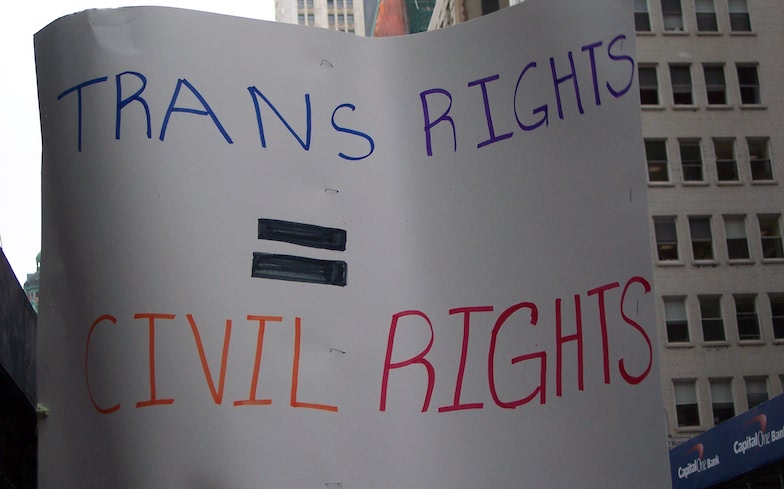
Mermaids are appealing the widely controversial decision by the Charity Commission to award the LGB Alliance charitable status.
Back in April, the trans-exclusionary group were approved onto their register as their purposes fall within the legal definition of charity, apparently.
The LGB Alliance, which rose to prominence in 2020, have continuously used their platform to “assert the rights of lesbians, bisexuals and gay men to define themselves as same-sex attracted” while excluding trans individuals.
The group’s existence has faced plenty of backlash from the very people it claims to be representing – lesbian, gay and bisexual people – who have taken to social media to distance themselves from the “alliance”.
Mermaids, the leading trans charity in the UK, launched an appeal against the Charity Commission’s decision at the first tier tribunal on Tuesday (2 June), arguing that the LGB Alliance’s newfound status as a charity is wrong because they don’t positively benefit the public.
Their appeal reads: “In reality, LGB Alliance seeks only to operate for the benefit of lesbian and gay people who are both not transgender and share LGBA’s beliefs.”
LGBTQ+ charities and groups such as Stonewall, Gendered Intelligence, the Good Law Project, LGBT+ Consortium, LGBT Foundation and TransActual are supporting Mermaids in their appeal.
Susie Green, CEO of Mermaids, said in a statement: “Mermaids supports trans young people, children and their families who face overwhelming hostility simply because of who they are. The LGB Alliance wants to divide the LGBTQ+ community in an attempt to undermine and isolate trans people, even children.
“Pride has always been about confronting prejudice and oppression, and this year, Mermaids is proud to stand up for the rights of trans people in court, with the unbreakable support of our LGBTQ+ charity family.”
Paul Roberts, CEO of LGBT+ Consortium, added: “Charity status is hard earned and should promote positive and inclusive change for those most marginalised in our communities. The decision to register LGB Alliance goes in the face of that and sows distrust in what it means to hold charitable status.
“They exist to oppose free, safe and empowered trans lives and, as LGBT+ organisations, we stand as one to ask the Tribunal to quash the Charity Commission’s decision. We are with Mermaids every step of the way and will always stand up for an LGBT+ charity sector that puts positive public benefit first.”
Helen Belcher, Chair of Trans Actual, also said: “The idea that an organisation which wants trans people to be second class citizens should be recognised as a charity brings the whole system into disrepute.”

When the news broke in April of LGB Alliance’s status as a charity, the Commission said there were a “number of objections” that they took into consideration, including a petition that garnered thousands of signatures.
They defended their decision by claiming that a charity “can promote the rights of one or more specific groups, but may not do so whilst demeaning the rights of others, including on social media.” Make it make sense?
The Commission added: “If LGB Alliance presents its view in such a way that respects the dignity of transgender persons and does not create an intimidating, hostile, degrading, humiliating or offensive environment, then this is capable furthering charitable purposes.”
The LGB Alliance welcomed the decision on social media, saying they are “keen to get on with our charitable aims of advancing the interests of LGB people,” with the hashtags “#SexNotGender” and “#ProgressiveLGBPolicies”.
You can read The Charity Commission’s full reasoning behind registering the LGB Alliance as an official charity here.



